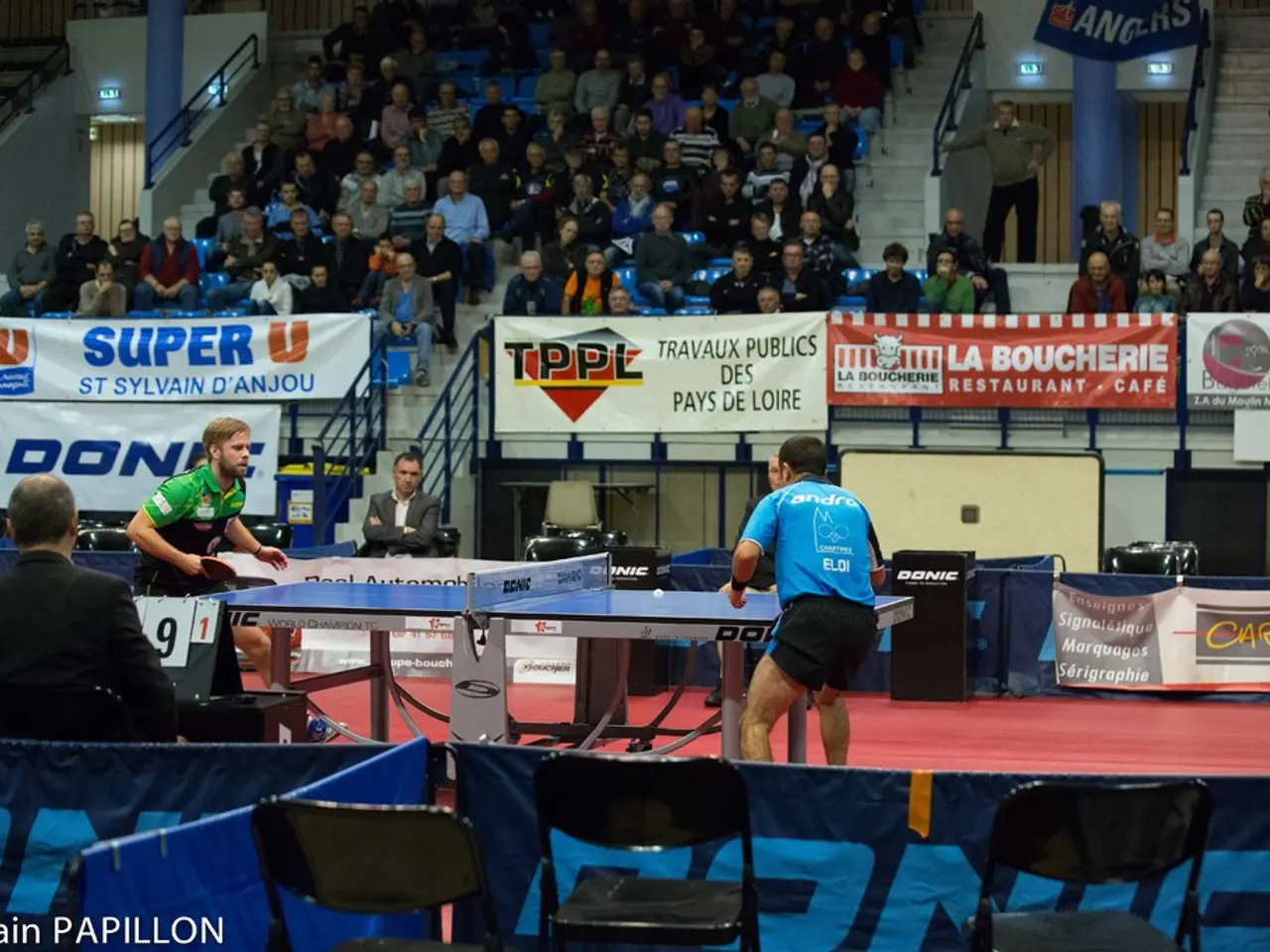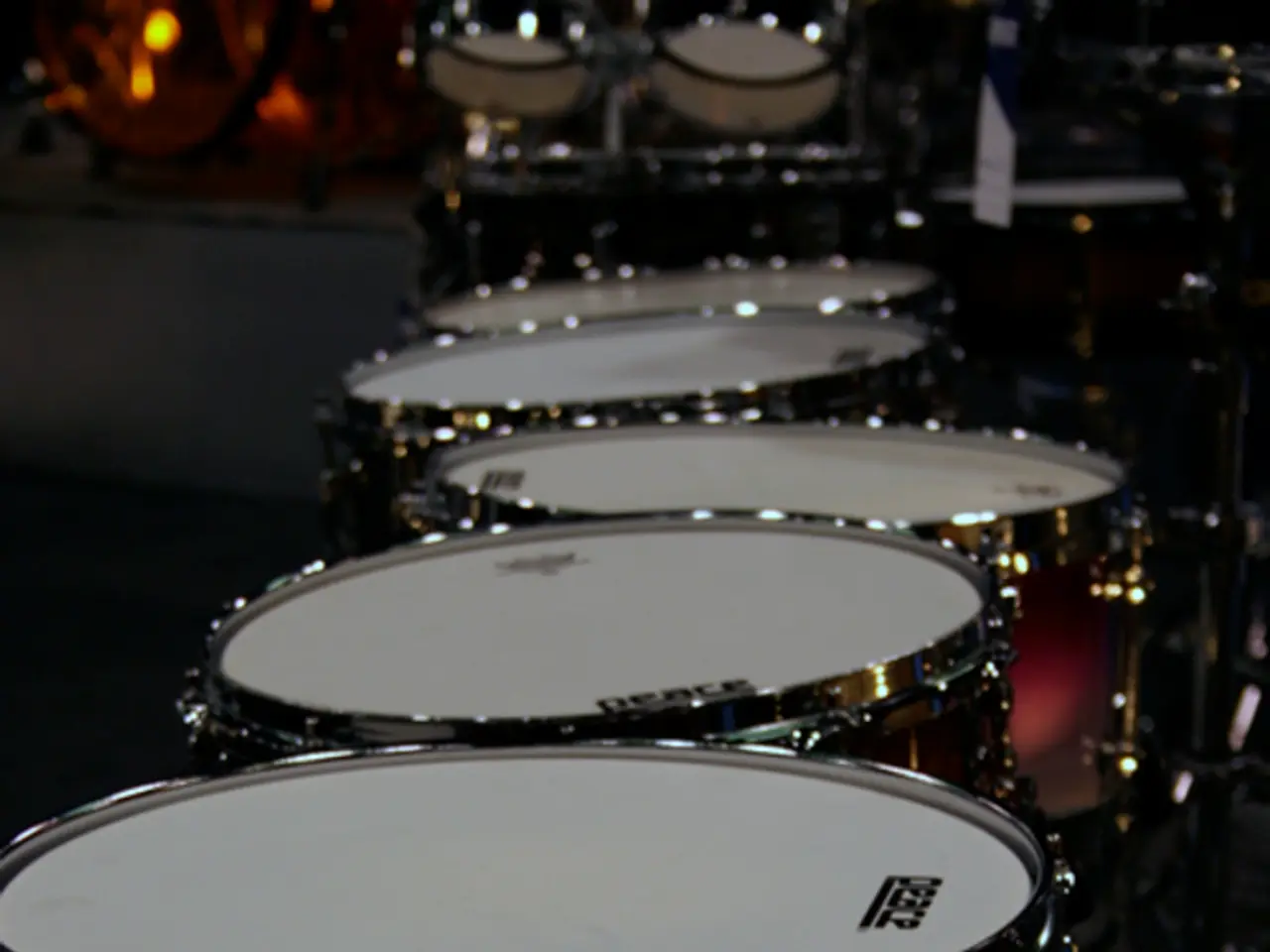Physical and Mental Fitness Through Sport: A Comprehensive Resource for Overall Health and Social Interaction
In the realm of physical activities, sports stand out as a powerful force that transcends borders, unites people, and improves lives. From the bustling streets of cities to the serene landscapes of nature, sports offer an exciting blend of competition and camaraderie that captivates millions worldwide.
Sports activities are renowned for their numerous health benefits. They improve cardiovascular health, lower blood pressure, enhance circulation, strengthen muscles and bones, and boost immune function. Moreover, they provide adults with reduced stress, improved fitness, and social connection. For youth, sports build motor skills, self-esteem, and academic success.
The international appeal of sports is staggering, with major events like the Olympics, FIFA World Cup, and NBA Finals commanding global attention. These events not only showcase the pinnacle of athletic prowess but also serve as a platform for cultural exchange and unity.
Outdoor sports, in particular, bring a unique physical challenge, enhance mental well-being, offer full-body workouts, and boost vitamin D levels. Activities such as soccer, running, cycling, hiking, and surfing are popular worldwide, providing something for everyone, regardless of age, interest, or fitness level.
Indoor sports, on the other hand, gain popularity due to weather consistency, safety, and convenience. Indoor gyms host a variety of activities, including basketball, badminton, table tennis, martial arts, and rock climbing.
Individual sports instil resilience and self-motivation, while team sports cultivate cooperation, leadership, and responsibility. Sports activities sharpen the mind, foster social bonds, and teach life skills like patience, strategy, and discipline.
The evolution of sports across cultures has been deeply influenced by historical, social, and political factors. Western sports spread globally primarily through European colonialism and American influence, often supplanting traditional games. However, colonized peoples sometimes harnessed sports victories as symbols of resistance and identity reaffirmation.
Sports themselves evolved from ancient cultural rituals, with Greek athletics combining religious and secular elements that informed later modern sports. In the contemporary era, sports marketing and commercialization have grown sharply, with sponsorships becoming crucial since the 1970s.
The rise of online sports betting has intensified fan engagement by allowing spectators to participate financially and emotionally during games in real time. Betting platforms enhance the viewing experience through interactive features, fantasy leagues, and social sharing, deepening fans' connections to both the sport and its players. This phenomenon has commercialized fandom further, influencing game scheduling, broadcasting, and advertising strategies to capture bettors’ attention.
However, concerns exist about gambling-related harms and the integrity of sports contests. As the world of sports continues to evolve, striking a balance between commercialization, fan engagement, and ethical considerations will be key.
In conclusion, sports are more than just games. They are a core component of a balanced lifestyle, shaping health, social connections, and mental clarity. They revitalize the soul and offer something for everyone, regardless of age, interest, or fitness level. Whether played indoors or outdoors, alone or in teams, sports offer a unique and transformative experience that brings people together and improves lives.
References: [1] Riordan, M. (2017). Cricket Country: Cultures, Games, and Colonialism. Oxford University Press. [2] Finley, M. (1983). The Olympic Games: The First Thousand Years. University of California Press. [3] Guha, R. (1997). A Corner of a Foreign Field: The Indian History of a British Sport. Viking. [4] Diemer, M. (2008). The Commercialisation of European Football: The Role of Sponsorship. Routledge.
Sports contribute significantly to both physical and mental health, promoting cardiovascular health, lowering blood pressure, and strengthening muscles and bones (science and health-and-wellness). Additionally, they offer emotional benefits, such as reduced stress, boosted self-esteem, and improved social connections (mental-health).
Furthermore, sports participants gain vital life skills like resilience, self-motivation, cooperation, leadership, and discipline (fitness-and-exercise), making them essential elements in a balanced lifestyle for people of all ages and interests.




